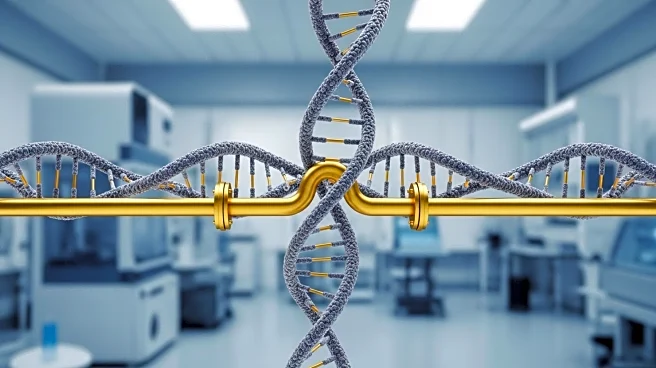What's Happening?
Genmab has finalized an $8 billion acquisition of Merus, a Netherlands-based biotech company specializing in oncology treatments. The deal involves Genmab purchasing all of Merus' common shares at $97 each, a 41% premium over the closing price. This acquisition is expected to be completed in the first quarter of 2026, pending regulatory approvals and shareholder consent. Merus' pipeline, particularly its bispecific antibody petosemtamab, has shown promising results in clinical trials, notably in combination with Merck's Keytruda for treating head-and-neck squamous cell carcinoma. Analysts have highlighted the potential blockbuster market opportunity for petosemtamab, which could become a standard treatment in its field.
Why It's Important?
The acquisition of Merus by Genmab signifies a growing interest in the biotech sector, particularly in oncology treatments. This move could stimulate further mergers and acquisitions within the biopharma industry, which has seen a slowdown in recent years. The successful integration of Merus' innovative treatments into Genmab's portfolio could enhance the company's market position and drive advancements in cancer therapies. Additionally, the acquisition reflects broader trends in the industry, where companies are seeking to expand their capabilities through strategic partnerships and acquisitions.
What's Next?
Pending regulatory approvals and shareholder agreement, the acquisition is set to be completed by early 2026. The integration of Merus' assets into Genmab's operations will be closely watched by industry analysts and investors. The success of petosemtamab in clinical trials suggests potential for further development and commercialization, which could lead to new treatment standards in oncology. The acquisition may also prompt other companies to pursue similar strategies, potentially leading to increased consolidation in the biotech sector.
Beyond the Headlines
The acquisition highlights the importance of innovation in the biotech industry, particularly in developing treatments for complex diseases like cancer. It raises questions about the balance between fostering innovation and managing costs, as companies invest heavily in research and development. The deal also underscores the competitive nature of the biotech sector, where companies must continuously adapt and expand their capabilities to remain relevant.










